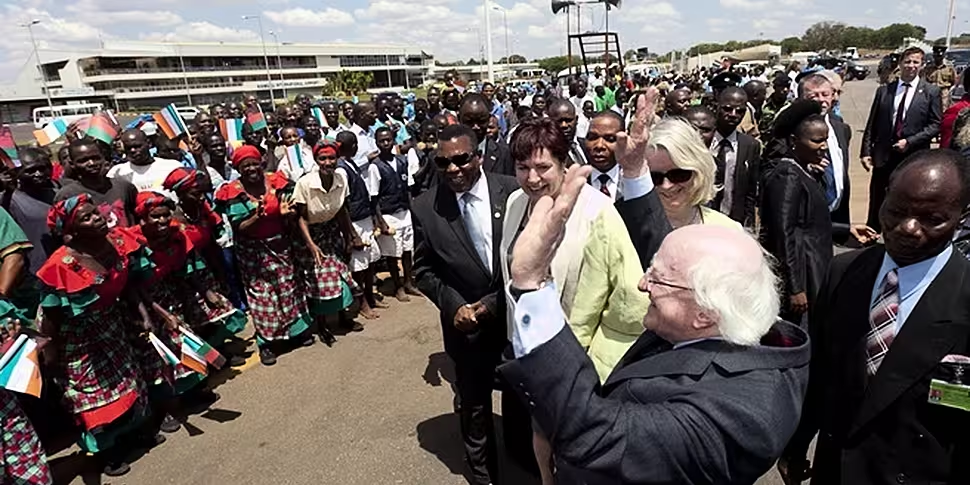President Higgins received a rapturous welcome in Lilongwe, Malawi as he commences the second leg of his 3 week state trip to Africa.
It is the first visit of an Irish president to the country of 16 million people, 62 per cent of whom are challenged by hunger and poverty.
On his arrival, Mr Higgins said he would be of “any help” that he can, towards the country.
Malawi is 174 out of 187 countries in the human development index and suffers from the onset of climate change, more than others because of the warm rains.
Decades of underdevelopment and a growing HIV-Aids problem have weighed heavily on the population and public systems.
Malawi was given independence from Britain in 1964 and was then ruled for 30 years by authoritarian leader, Hastings Kamuzu Banda, who neglected to support the emergence of a decent civil society.
Currently, the country’s debt burden is a serious economic concern; standing at $1.4 billion. By the 1970’s the state was receiving huge sums of money in loans from international investors. When interest rates rose in the 1980’s, the foreign debt rocketed.
It was given some debt relief by the IMF in 2006, after an agreement to privatise many industries and end farming subsidies. The removal of support to farmers, combined with serious drought, led to a major food shortage and hunger problems.
By 2006, it qualified for debt relief, and then reintroduced some subsidies.
Many of its issues with poverty were brought about by an “inherited debt albatross”, said President Higgins – “the question of trade is limited where Malawi can make advantages, but could “if allowed, with new trade rules”, he proposed.
I was “anxious to come to experience the work of Irish Aid in Malawi”
“We need to ensure that we make a difference”, but with “Africans deciding on the best policies, with our best assistance; if we can”.
Irish Aid spent €20 million in Malawi in 2013 combating poverty, supporting trade, and other civil society projects that target gender based violence.
Social scientists have pointed to cultural factors as a key role in gender inequality and violence, and President Higgins will visit an exhibition related to a national campaign which highlights, and advocates against gender violence.
Irish NGO’s, Trocaire, GOAL and CONCERN, who work in Malawi are involved in the “16 Day s of Activism Against Gender Violence” campaign which starts on 25th November.
Recent investment in HIV programmes and health have been successful, and Malawi’s HIV problem has remarkably reduced.
“My respect and admiration for what the Malawian people have achieved is enormous, that any one of these challenges on their own could have defeated a people; they struggle with a combination of challenges and they deserve our assistance” said the president as he disembarked his plane.









